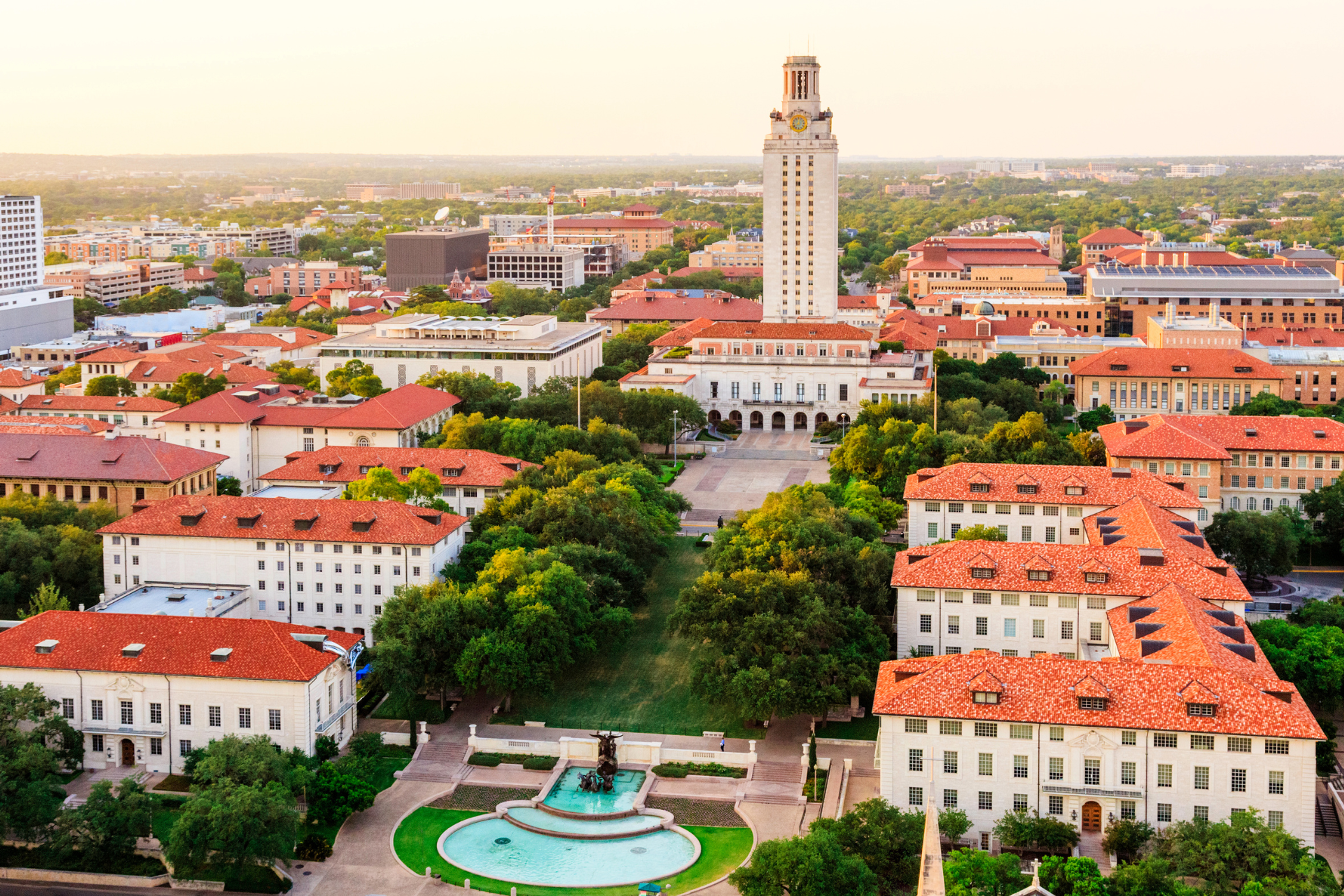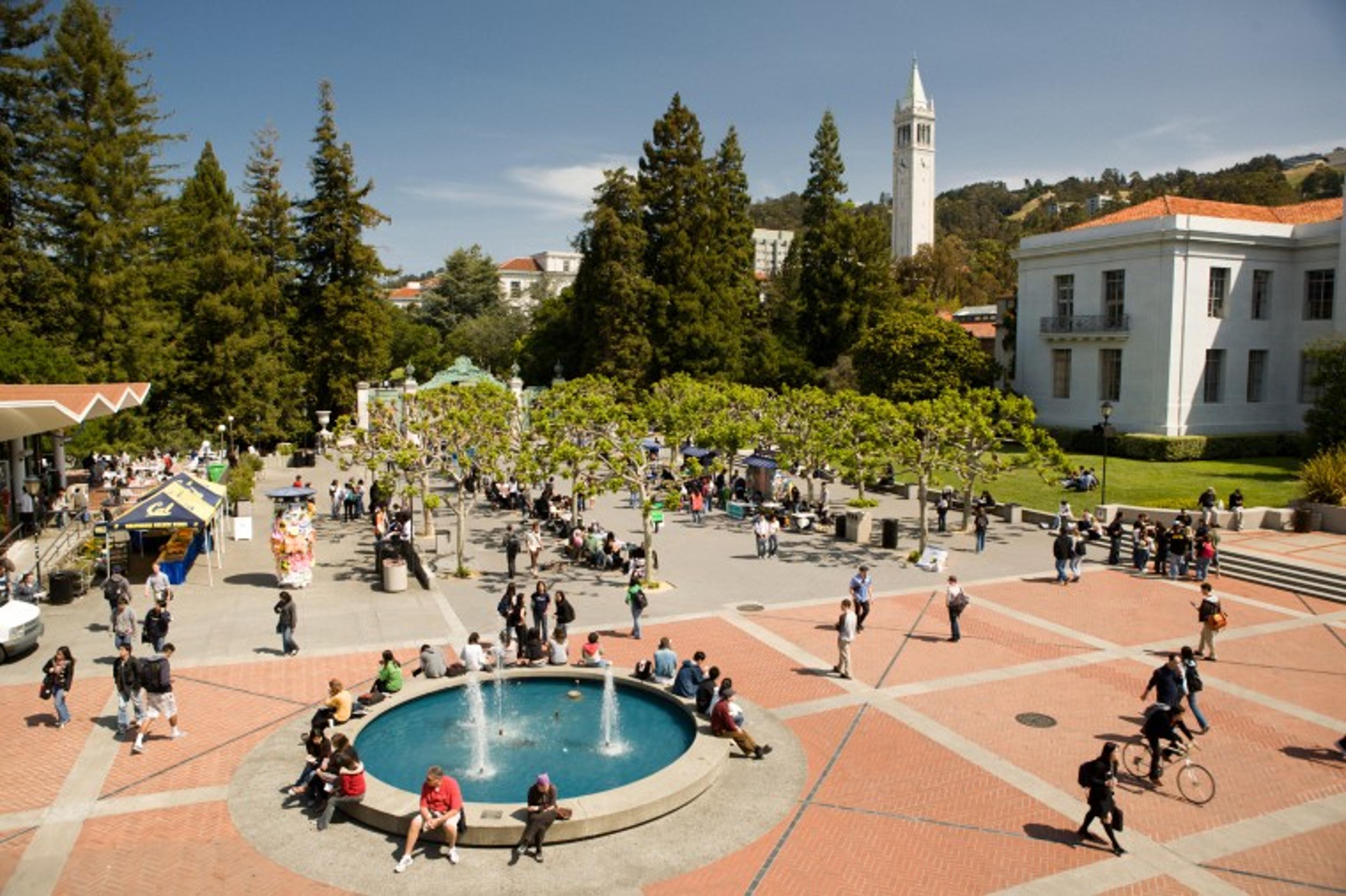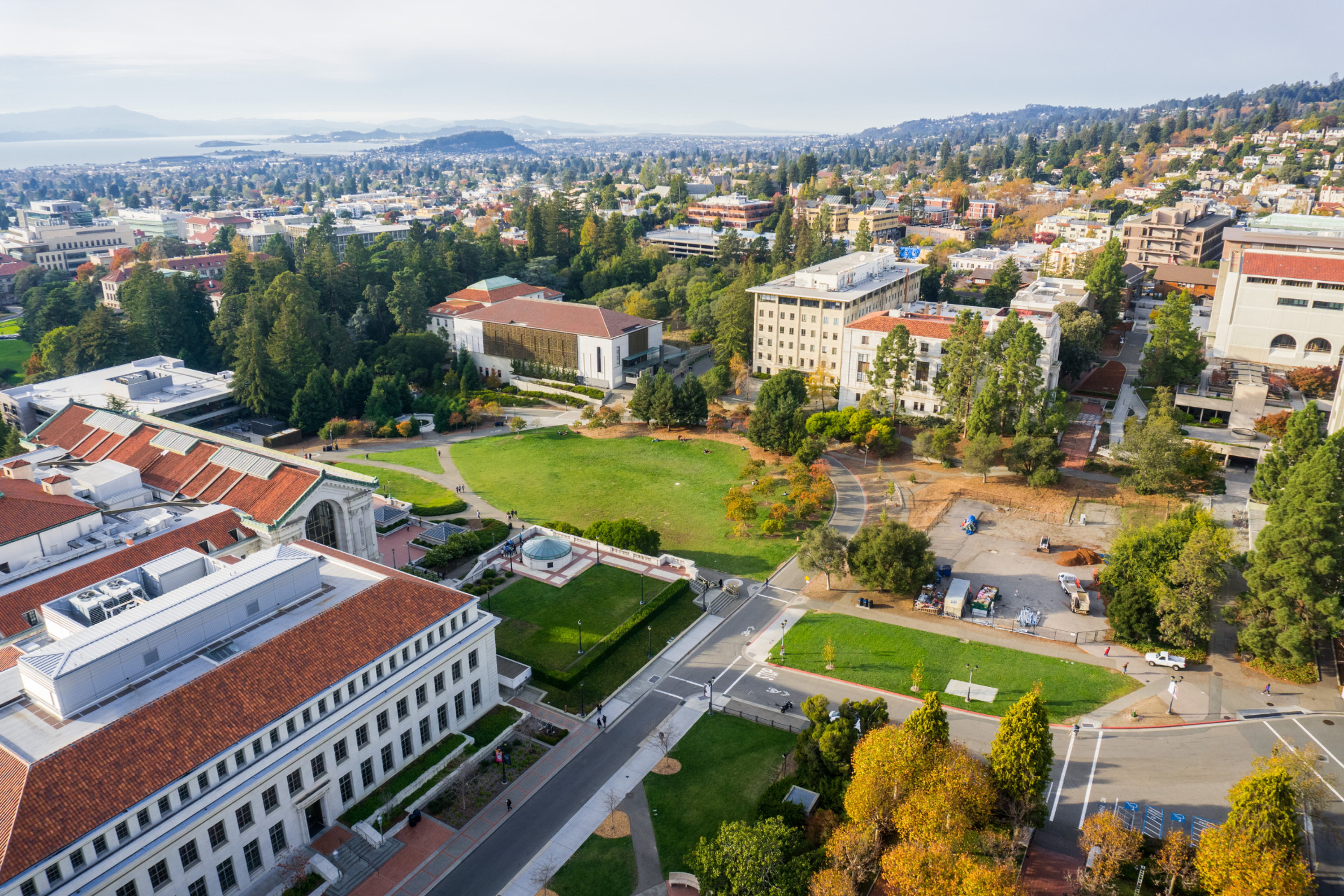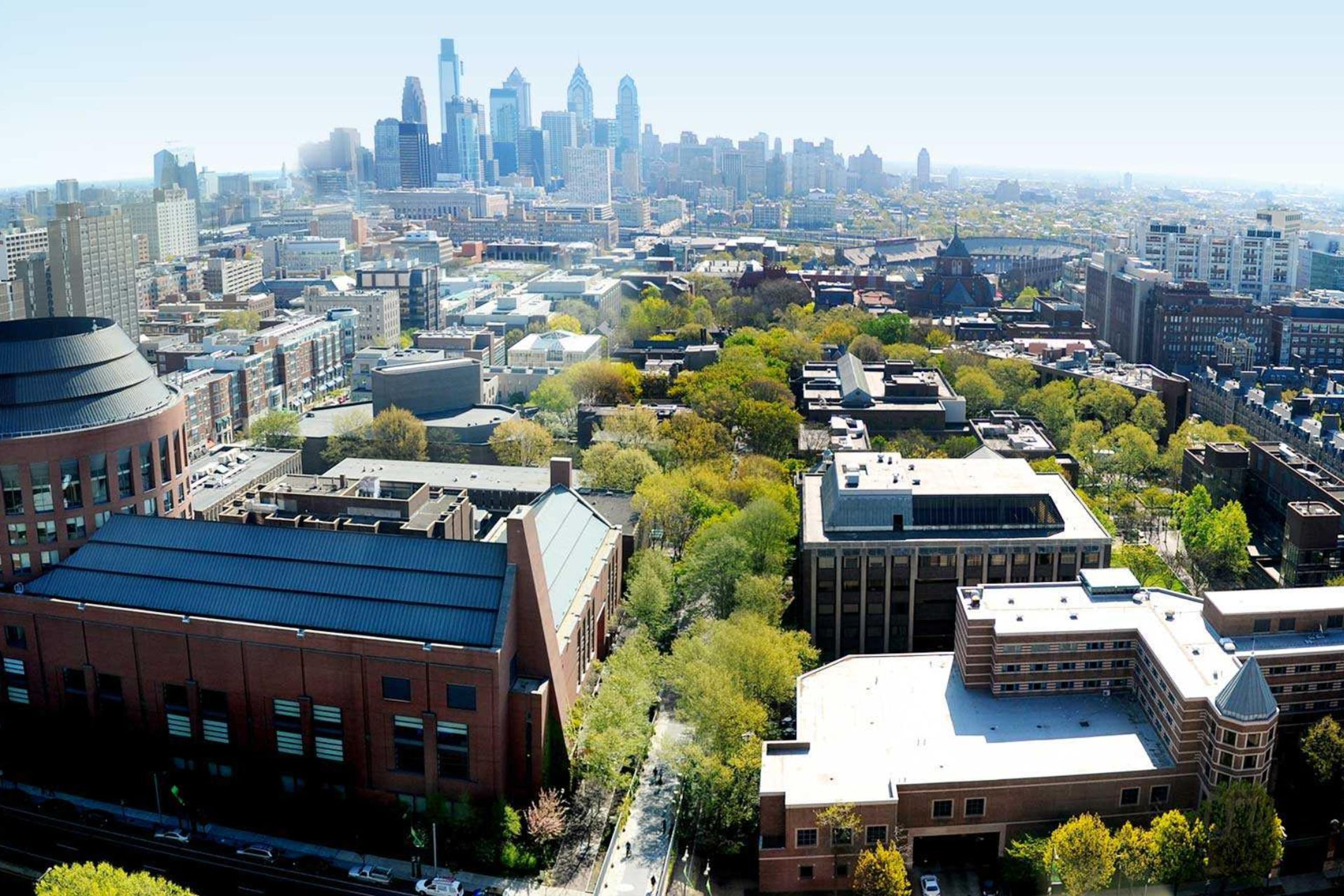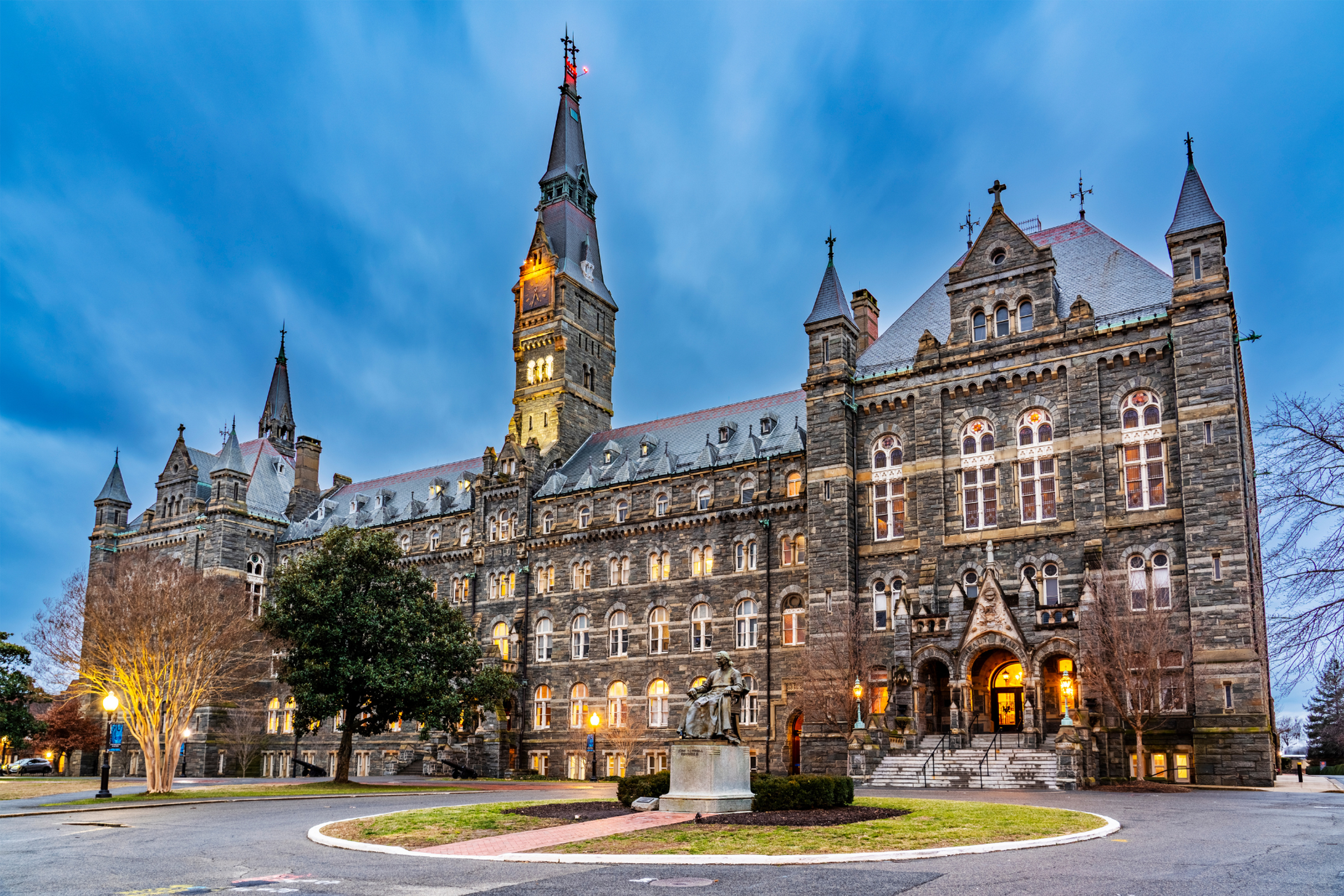
Table of Contents
Georgetown MBA Program Overview (2025)
Georgetown University's McDonough School of Business, established in 1957, is located in Washington, D.C. Originally an undergraduate program within the School of Foreign Service, it evolved into a standalone entity recognized for its excellence in international business. In 1998, the school was renamed in honor of alumnus Robert Emmett McDonough following his generous $30 million donation. Today, the McDonough School offers a range of undergraduate and graduate programs, including its distinguished MBA, and is housed in the state-of-the-art Rafik B. Hariri Building.
Georgetown MBA Acceptance Rate Over Time
As of the most recent data, Georgetown University’s McDonough School of Business received 1,642 applications and enrolled 263 students in its Full-time MBA Class of 2024. This reflects an acceptance rate of approximately 16%, maintaining McDonough’s position as a competitive business school.
Here’s a look at how the acceptance rate has evolved over the years:
- 2024: ~16%
- 2022: ~16%
- 2021: 50.9%
- 2020: 48.1%
- 2019: 57%
These fluctuations highlight how applicant volume, class size targets, and admissions selectivity can shift significantly year to year. While recent classes reflect heightened competition, prospective students are encouraged to focus on building strong, well-rounded applications that align with McDonough’s mission and values.
Georgetown MBA Class Profile (Class of 2024)
- Total Enrolled: 263 students
- Applications Received: 1,642
- Acceptance Rate: ~16%
- Average Age: 29
- Average Years of Work Experience: 5.6
Academic Profile:
- Average GPA: 3.3 (Mid 80% range: 2.76–3.73)
- Average GMAT: 696 (Mid 80%: 640–730)
- Average GMAT Focus Edition: 621 (Mid 80%: 574–670)
- Average GRE: 319 (Mid 80%: 309–330); 44% submitted GRE scores
- Average Executive Assessment (EA): 153
Demographics:
- Female Students: 30%
- International Students: 49%
- Countries Represented: 41
- U.S. Diversity (African American, Asian American, Hispanic American, Native American): 33%
- Underrepresented Minorities: 14%
- U.S. Military (Active, Reserve, Veterans): 12%
Undergraduate Majors:
- Business: 24%
- Humanities: 23%
- Math/Physical Sciences: 14%
- Engineering: 12%
- Government & International Studies: 10%
- Economics: 9%
Industry Backgrounds:
- Financial Services: 18%
- Consulting: 11%
- Technology & New Media: 9%
- Government: 8%
- Manufacturing: 5%
- Consumer Product Goods: 5%
Georgetown McDonough continues to attract a dynamic and diverse group of future business leaders, reinforcing its reputation as a top destination for global, mission-driven professionals.
Georgetown McDonough MBA Cost - Tuition & Fees (2025–2026)
Pursuing an MBA at Georgetown’s McDonough School of Business is a significant investment. Below is a breakdown of the estimated total cost of attendance for one academic year in the Full-time MBA program:
Direct Costs (Billed by the University):
- Tuition: $70,108
- Graduate Student Activity Fee: $52
- Georgetown University Health Insurance: $4,625
(This may be waived if you have alternative coverage.) - Subtotal (Direct Expenses): $74,785
Indirect Costs (Estimated Living Expenses):
- Average Housing & Food: $22,800
- Personal Expenses: $5,026
- Books & Supplies: $2,646
- Transportation: $3,130
- Federal Direct Loan Fees: $3,100
- Subtotal (Indirect Expenses): $36,702
Total Estimated Cost per Year: $111,487
These estimates are based on a full-time student schedule and are subject to change annually. For the most accurate and up-to-date billing details, visit Georgetown’s Full-time MBA Admissions & Tuition
Georgetown McDonough MBA Employment Report – Class of 2024
Median Base Salary: $148,000
Average Signing Bonus: $33,854
Job Offers Within Three Months of Graduation: 88.8%
Top Industry Placements
- Consulting: 36%
- Financial Services: 27%
- Technology: 8%
- Consumer Goods & Retail: 8%
- Manufacturing: 8%
- Real Estate: 5%
- Healthcare: 3%
- Other industries include government, media, and entrepreneurship.
Top Hiring Companies
- Accenture
- Amazon
- American Airlines
- Bain & Company
- Baird
- Citigroup
- Cognizant
- Deloitte
- EY
- Harris Williams & Co.
- Jefferies Financial Group
- JPMorgan Chase
- McKinsey & Company
- MorganFranklin Consulting
- PwC
- Slalom Consulting
- Wells Fargo
Georgetown McDonough’s career outcomes reflect strong collaboration between students, the McDonough Career Center, and a global alumni network. With access to career coaching, entrepreneurship resources, and experiential learning programs, graduates enter the workforce prepared to make immediate impact. Read the Full 2024 MBA Employment Report.
Georgetown McDonough *Application Overview.
Georgetown McDonough MBA Programs & Degrees
- Traditional, Full-Time MBA - A two-year program designed for professionals aiming to advance or pivot their career
- Executive MBA - An intensive program for seasoned professionals seeking leadership roles. Applicants typically have a minimum of eight years of professional experience.
- Deferred MBA - This program allows students to secure a place in the MBA program before gaining significant work experience.
- Flex MBA - A part-time program offering flexibility for working professionals, with options for evening or weekend classes.
- Flex MBA Online - An online variant of the Flex MBA, providing the same rigorous curriculum with added convenience.
- Joint Degrees - Opportunities to combine the MBA with other graduate degrees, such as:
- MBA/JD (Juris Doctor)
- MBA/MSFS (Master of Science in Foreign Service)
- MBA/MPP (Master of Public Policy)
- MBA/MD (Doctor of Medicine)
Georgetown McDonough Deadlines
For the 2024-2025 admissions cycle, the application deadlines are as follows:
| Application Round | Deadline |
|---|---|
| Early Action | September 9, 2024 |
| Round 1 | October 1, 2024 |
| Round 2 | January 6, 2025 |
| Round 3 | April 2, 2025 |
Note: Decisions are typically released within 6-8 weeks after each deadline.
Georgetown MBA Requirements
- Application Checklist:
- Application Fee: $175 (waivers available for eligible candidates)
- GMAT/GRE Score: Official test scores; waivers may be available based on qualifications.
- Transcripts: Unofficial transcripts from all academic institutions attended; official transcripts required upon admission.
- Resume: Current professional resume highlighting work experience, education, and relevant skills.
- Essays: Responses to specific prompts (details below).
- Letters of Recommendation: One is required, preferably from a current supervisor.
- Interview: By invitation only, conducted virtually or on-campus.
- Georgetown MBA Essays:
- Essay Options (Choose One):
- Georgetown Community: Discuss how your personal background will contribute to the diversity of perspectives at Georgetown.
- Cura Personalis: Reflect on a time you supported a teammate or coworker, embodying the Jesuit value of "care for the person."
- Personal Achievement: Describe a significant accomplishment and its impact on your professional or personal growth.
- Video Essay: Share in one minute something that has brought you joy recently outside of your professional life.
- Optional Essay: Provide any additional information you wish to highlight to the admissions committee.
- Essay Options (Choose One):
- Georgetown MSB Interview - Interviews are by invitation only and serve to assess your fit within the Georgetown community. They are typically conducted by admissions staff, alumni, or current students. Preparation should include articulating your career goals, leadership experiences, and reasons for choosing Georgetown.
- Georgetown MBA Letters of Recommendation - One letter is required, preferably from a current supervisor who can attest to your professional achievements and potential. If unable to obtain a recommendation from a current supervisor, an explanation should be provided. The recommender should submit the letter directly through the online application system
Georgetown McDonough MBA Curriculum & Class Structure
Georgetown University's McDonough School of Business offers a comprehensive MBA program designed to equip students with essential business acumen and leadership skills. The curriculum is structured over two years, blending core courses with electives to provide both foundational knowledge and specialized expertise.
Year 1
Core Courses - The first year focuses on building a strong foundation in key business disciplines. Students undertake core courses in areas such as:
- Accounting
- Finance
- Marketing
- Management
- Operations
- Economics
- Business Ethics
Global Business Experience (GBE) - A distinctive feature of the program, the GBE involves a consulting project where students collaborate with international organizations to address real-world business challenges. This experience culminates in a week-long overseas residency, providing practical exposure to global business environments.
Year 2
Electives and Concentrations - In the second year, students tailor their studies by selecting from a wide array of electives. This flexibility allows for specialization in areas such as:
- Finance
- Marketing
- Strategy
- Entrepreneurship
- International Business
Capstone Project - Students engage in an integrative learning experience that synthesizes their coursework and practical experiences, often involving real-world consulting projects or business plan development.
How to Get Into Georgetown McDonough School of Business
Highlight Your Global Perspective
Georgetown McDonough places a strong emphasis on international business and seeks applicants who bring a global mindset. If you have worked, studied, or engaged in activities across different countries or cultures, highlight these experiences in your application. Even if you haven’t had direct international exposure, showcasing an understanding of global markets, cross-cultural collaboration, or aspirations to work in an international setting can set you apart. Use specific examples to demonstrate how your perspective has been shaped by diverse environments and how you plan to contribute to Georgetown’s globally focused community.
Demonstrate Leadership and Community Engagement
Leadership is a key trait that Georgetown values, and applicants should provide clear evidence of their ability to influence and inspire others. Whether you have led teams in a professional setting, initiated projects, or played an active role in volunteer work, be sure to articulate how these experiences reflect your leadership potential. Admissions committees look for candidates who go beyond personal success and actively contribute to their communities. Highlight instances where you took initiative, overcame challenges, or made a tangible impact, whether in your workplace, university, or local community.
Articulate Clear Career Goals
Your application should present a well-defined vision of your professional future. Clearly outline your short-term and long-term career objectives, explaining why an MBA from Georgetown McDonough is the right step toward achieving them. Be specific about the industries, roles, or companies you are targeting and how Georgetown’s curriculum, faculty, and network will support your journey. Avoid vague statements; instead, use concrete examples to show how your past experiences have led you to this point and how the MBA will bridge the gap between where you are and where you want to be. A strong, well-articulated career plan demonstrates to the admissions committee that you have a strategic approach to your professional growth and will make the most of your time at Georgetown.
Georgetown MSB Notable Alumni & Faculty
Alumni
- Michael Chasen: Co-founder and former CEO of Blackboard Inc., a leading educational technology company.
- Ted Leonsis: Owner of the Washington Capitals (NHL) and Washington Wizards (NBA), and former executive at AOL.
- Catherine M. Russell: Executive Director of UNICEF and former U.S. Ambassador for Global Women's Issues.
Faculty
- Michael Czinkota: Renowned for his work in international business and trade, Czinkota served as Deputy Assistant Secretary of Commerce and authored numerous influential publications.
- Ricardo Ernst: Specializing in global supply chain management, Ernst holds the Baratta Chair in Global Business and serves as the Executive Director of the Latin American Leadership Program.
- Bill Novelli: A public relations expert and former CEO of AARP, Novelli is a Distinguished Professor of the Practice, focusing on social impact and business leadership.
The Bottom Line
Georgetown University’s McDonough School of Business offers a globally focused, highly competitive MBA program that blends academic rigor with real-world impact. With a 16% acceptance rate, top-tier career outcomes, and strong industry placement in consulting, finance, and tech, McDonough attracts purpose-driven professionals ready to lead. Its D.C. location, international consulting experiences, and mission-driven curriculum make it an ideal choice for those seeking to advance their careers while making a difference in the world.
Get Into Georgetown McDonough With the Help of Experts
The Georgetown McDonough MBA application process is highly competitive, and working with an experienced admissions consultant can give you a strategic edge. A knowledgeable coach can help you refine your essays, strengthen your interview skills, and position your unique story in a way that resonates with the admissions committee. Whether you need guidance on crafting a compelling narrative, optimizing your resume, or preparing for the interview, expert coaching can be the key to unlocking your spot at McDonough.
Here are three of the most popular MBA admissions consultants for Georgetown MSB. Browse all here:
Alexandra E. — An MBA graduate from Stanford Graduate School of Business, Alexandra has a background in international affairs from Georgetown University. She has professional experience with the Creative Artists Agency and YouTube's Public Figures business. Alexandra specializes in assisting candidates from non-traditional backgrounds, focusing on school selection, crafting unique essays, and interview preparation.
Avi L. — With over 15 years of experience, Avi has coached more than 500 MBA applicants, boasting a 90% success rate of clients gaining admission to one of their top three schools. He specializes in the Top 20 business schools, offering in-depth personal attention to each client, focusing on storytelling and application differentiation.
Abyie M. — A Georgetown McDonough MBA alumnus, Abyie has a professional background in finance and investment banking, including roles at Houlihan Lokey and JPMorgan Chase & Co. He offers insights into the MBA admissions process, particularly for candidates interested in finance, providing guidance on essays, interviews, and overall application strategy.
Read these next:
- What is an MBA Degree? An Expert Guide
- MBA Requirements: What You Need to Apply (and What Top Programs Really Look For)
- Top 25 Business Schools’ Acceptance Rates and Class Profiles
- A Comprehensive MBA Application Timeline—With Chart
- The Top 25 MBA Programs—Acceptance Rates, Tuition, and More
- The 10 Best MBA Admissions Consultants
FAQs
Is the McDonough School of Business good?
- Yes, Georgetown University’s McDonough School of Business is considered one of the top business schools in the U.S. and globally. It is known for strong academics, global business focus, high job placement rates, and a strategic location in Washington, D.C.
What is Georgetown McDonough ranked in the world?
- Georgetown McDonough consistently ranks among the top 25 business schools globally, depending on the ranking organization. For example, the Financial Times and U.S. News & World Report often rank it highly for international business and executive education.
What is the acceptance rate for Georgetown McDonough School of Business?
- The acceptance rate for McDonough’s full-time MBA program typically ranges between 20%–30%, making it moderately selective. Admissions take a holistic approach, considering GMAT/GRE scores, work experience, academics, and leadership potential.
What is McDonough Business School known for?
- McDonough is known for its international business curriculum, strong ethics and leadership training, and close ties to global policy and finance through its location in D.C. It also offers extensive networking and career opportunities in consulting, finance, and government sectors.




